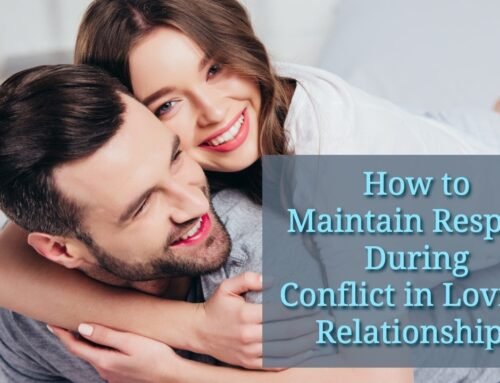Introduction to Conflict Resolution
Conflict is an inherent aspect of any relationship, be it personal or professional. While the term “conflict” often carries a negative connotation, it is crucial to recognize that disagreements and differing perspectives are natural and inevitable. Rather than viewing conflicts as detrimental, it is beneficial to understand that they can serve as opportunities for growth and deeper understanding.
When approached with the right mindset and tools, conflicts can strengthen relationships by fostering open communication and mutual respect. Effective conflict resolution requires a set of skills that can be developed and refined over time. These skills not only help in navigating disputes but also contribute to the overall health and harmony of the relationship.
Life coaching and relationship coaching often emphasize the importance of mastering conflict resolution techniques. By learning how to manage and resolve conflicts constructively, individuals can prevent minor disagreements from escalating into significant issues. Additionally, these skills enable partners to address underlying concerns and work towards mutually satisfying solutions.
The ability to resolve conflicts healthily is crucial for maintaining strong and lasting relationships. It ensures that both parties feel heard and valued, promoting a sense of equality and partnership. Furthermore, effective conflict resolution can lead to greater emotional intimacy and trust, as it encourages open dialogue and vulnerability.
In essence, embracing conflict as a natural component of relationships and equipping oneself with the necessary skills for resolution can transform potential friction into opportunities for connection and growth. By investing in life coaching or relationship coaching, individuals can enhance their ability to navigate conflicts, ultimately fostering more resilient and harmonious relationships.
Understanding the Root Causes of Conflicts
Communication Issues
Conflicts in relationships often emerge from a variety of root causes. One of the primary contributors is communication issues. Miscommunication or lack of communication can lead to misunderstandings, which in turn foster conflict. When partners fail to express their thoughts, feelings and needs clearly, assumptions are made and misconceptions arise, creating an environment ripe for discord.
Unmet Needs
Another significant cause of conflicts is unmet needs. Every individual has unique emotional, physical and psychological needs. When these needs go unrecognized or unfulfilled in a relationship, feelings of frustration and resentment can surface. This can manifest in arguments and disputes as each party struggles to feel acknowledged and valued.
Differing Values and Expectations
Differing values or expectations also play a crucial role in the genesis of conflicts. People come from diverse backgrounds, with distinct beliefs, traditions and life experiences. When partners have conflicting values or expectations about important aspects of life, such as finances, parenting or career goals, it can lead to significant friction. Recognizing and appreciating these differences is vital for healthy conflict resolution.
Misunderstandings
Furthermore, misunderstandings often exacerbate conflicts. These misunderstandings can stem from various sources, including cultural differences, gender norms or simply misinterpreting each other’s intentions. Misunderstandings can escalate minor disagreements into major disputes if not addressed promptly and effectively.
Identifying the root cause of a conflict is the first and most crucial step toward resolving it. Relationship coaching and life coaching emphasize the importance of digging deeper to understand these underlying issues. By doing so, individuals and couples can address the core problems rather than just the symptoms, leading to more sustainable and effective conflict resolution. This approach not only helps in resolving current conflicts but also equips individuals with the skills to handle future disagreements more constructively.
Effective Communication Techniques
The Power of Active Listening
Effective communication is a cornerstone of healthy conflict resolution, particularly in life coaching and relationship coaching contexts. One of the most impactful techniques is active listening. This involves fully concentrating, understanding and responding thoughtfully to what the other person is saying. Active listening not only validates the speaker but also helps in de-escalating potential conflicts. For instance, nodding and summarizing the speaker’s points can show that you are genuinely engaged in the conversation.
Using “I” Statements for Constructive Dialogue
Another vital communication technique is the use of ‘I’ statements instead of ‘You’ statements. ‘I’ statements focus on the speaker’s feelings and experiences rather than placing blame on the other person. For example, saying, “I feel upset when our plans change suddenly,” is less confrontational than, “You always change our plans.” This subtle shift in language can significantly reduce defensiveness and open the door for more constructive dialogue.
Avoiding Blameful Language
Avoiding blame is also crucial in effective communication. Blaming language can exacerbate conflicts and create a hostile environment. Instead of assigning fault, it is more productive to discuss the issue at hand and work collaboratively towards a resolution. For example, instead of saying, “It’s your fault we’re late,” consider saying, “We need to leave earlier next time to make sure we arrive on time.”
Practical Tips for Effective Communication
Practical tips for implementing these techniques include setting aside dedicated time for discussions without distractions, maintaining eye contact and being mindful of your tone and body language. These strategies can help ensure that conversations are productive and that both parties feel heard and respected.
By incorporating these communication techniques, individuals can navigate conflicts more effectively, fostering healthier and more fulfilling relationships. Whether in the context of life coaching or relationship coaching, mastering these skills can lead to more meaningful and harmonious interactions.
Emotional Regulation and Managing Anger
The Importance of Emotional Regulation in Conflict Resolution
Emotional regulation is a critical aspect of conflict resolution, as it allows individuals to navigate disagreements without letting emotions escalate uncontrollably. Effective emotional regulation ensures that discussions remain constructive and do not devolve into unproductive arguments. Managing emotions, particularly anger, requires intentional strategies that help maintain calmness and composure.
Strategies for Managing Emotions
One effective strategy for managing emotions during conflicts is the practice of deep breathing exercises. Deep, slow breaths can help reduce physical tension and promote relaxation. By focusing on breathing, individuals can create a momentary pause that allows them to regain control over their emotions. Another beneficial approach is taking a timeout. Stepping away from the conflict, even briefly, can provide the space needed to cool down and reflect on the situation more objectively. This break can prevent impulsive reactions that might exacerbate the conflict.
Mindfulness Practices
Mindfulness practices also play a significant role in emotional regulation. Mindfulness involves paying attention to the present moment without judgment. Techniques such as meditation or mindful observation can help individuals become more aware of their emotional states and triggers. By recognizing these triggers, individuals can better manage their responses and avoid being overwhelmed by anger. Staying calm is essential for facilitating productive discussions, as it fosters an environment where both parties can express their perspectives without fear of confrontation.
The Role of Life Coaching and Relationship Coaching
In the context of life coaching or relationship coaching, these strategies can be particularly useful. Coaches often guide clients through processes that enhance their emotional intelligence and conflict resolution skills. By teaching clients how to manage their emotions effectively, coaches help them build healthier relationships and navigate conflicts with greater ease. Ultimately, the ability to regulate emotions and manage anger is foundational for resolving conflicts amicably and finding common ground.
Seeking to Understand Before Being Understood
The Power of Empathy in Conflict Resolution
Empathy plays a pivotal role in effective conflict resolution, especially within the realm of relationship coaching. When disagreements arise, the initial impulse often leans toward defending one’s own perspective. However, prioritizing an understanding of your partner’s viewpoint can foster a more constructive dialogue. This empathetic approach not only demonstrates respect but also lays the foundation for a mutually satisfying resolution.
Techniques for Enhancing Understanding
One effective technique to enhance understanding is paraphrasing. By restating your partner’s comments in your own words, you demonstrate active listening and confirm your comprehension. For instance, if your partner expresses frustration about feeling overlooked, you might respond with, “So, you feel like your contributions aren’t being acknowledged?” This not only validates their feelings but also provides an opportunity for them to clarify or expand on their thoughts.
Another essential method is asking clarifying questions. These questions serve to delve deeper into your partner’s concerns, ensuring that you grasp the full context. Questions such as, “Can you explain what you mean by that?” or “How did that situation make you feel?” invite your partner to share more details, which can be crucial for a comprehensive understanding. This approach can significantly reduce misunderstandings, paving the way for a more effective resolution.
The Role of Life Coaching in Fostering Empathy
Life coaching often emphasizes the importance of these skills in fostering healthy relationships. When both partners feel heard and understood, the emotional intensity of conflicts can diminish, allowing for a more rational discussion. Moreover, this practice of seeking to understand before being understood can enhance emotional intimacy, as it builds a foundation of trust and respect.
Incorporating these techniques into your conflict resolution strategy can transform confrontational scenarios into opportunities for growth and connection. By prioritizing empathy and understanding, you create a supportive environment where both partners feel valued and heard, ultimately leading to more harmonious and fulfilling relationships.
Finding Common Ground and Compromise
The Importance of Common Ground and Compromise
In the realm of conflict resolution, finding common ground and embracing compromise are pivotal skills. These practices not only help to de-escalate tensions but also foster mutual respect and understanding. By identifying shared interests and working towards solutions that cater to both parties, conflicts can transform from battlegrounds to platforms for growth and collaboration.
Finding Common Ground
Finding common ground involves recognizing and focusing on mutual goals or values, despite differing perspectives. This requires active listening and empathy – truly understanding the other party’s point of view. One effective strategy is to employ open-ended questions to elucidate the underlying interests behind each position. For instance, instead of arguing over the specifics of a work project, team members might explore their mutual desire for the project’s success and quality outcomes.
Embracing Compromise
Compromise, on the other hand, entails making concessions that are acceptable to all involved. It is not about one party winning or losing but reaching a balanced agreement where everyone feels their needs are addressed to some extent. A practical approach to compromise is the “win-win” method, where each party identifies their non-negotiables and negotiables. By prioritizing what’s most important and being willing to give ground on less critical issues, a mutually satisfying solution can often be found.
Examples of successful compromises abound in various contexts. In a relationship, a couple might disagree on vacation destinations. By discussing their underlying desires – one wanting relaxation and the other adventure – they could decide on a location that offers both, such as a coastal town with opportunities for both lounging on the beach and engaging in water sports. In the workplace, two departments might clash over budget allocations. Through identifying their core needs and exploring alternative funding sources, they could collaboratively develop a budget that supports both departments’ key projects.
The Role of Coaching in Conflict Resolution
The essence of life coaching and relationship coaching often lies in guiding individuals to these realizations. By fostering a mindset oriented towards finding common ground and embracing compromise, coaches help clients navigate conflicts effectively, paving the way for healthier interactions and sustained personal and professional relationships.
When to Seek Professional Help
Recognizing when to seek the assistance of a professional life coach or therapist can be pivotal in resolving conflicts and fostering healthier relationships. While many disputes can be managed through self-help techniques and mutual efforts, certain situations necessitate the expertise of a professional. When conflicts become recurrent, deeply rooted, or emotionally charged, it may be a sign that external guidance is required.
Persistent Unresolved Conflicts
One of the primary indicators that professional help is needed is the persistence of unresolved issues despite repeated attempts at resolution. If you find that arguments and disagreements are recurring without any significant progress, it is a clear signal that intervention is necessary. A professional life coach can provide valuable insights and strategies to break these cycles and facilitate more effective communication.
High Emotional Intensity
Another critical factor is the emotional intensity of conflicts. When disagreements escalate to the point of causing emotional distress, feelings of hopelessness, or even impacting mental health, it is essential to seek the aid of a therapist. Therapists are equipped with the skills to address underlying emotional issues and can offer a safe space for individuals to express their feelings and work through their challenges.
The Importance of Communication Skills
Moreover, professional guidance can be beneficial in improving communication skills. Effective communication is the cornerstone of any healthy relationship and a life coach or therapist can teach techniques that enhance listening, empathy and articulation. These skills are crucial for resolving misunderstandings and fostering a deeper connection between individuals.
In addition, if there are significant life changes or stressors, such as the loss of a loved one, job changes or major life transitions, seeking professional help can provide the support needed to navigate these challenges. Life coaches can offer coping mechanisms and strategies to manage stress, ensuring that conflicts do not exacerbate during these times.
Ultimately, seeking professional help is a proactive step towards building stronger, more resilient relationships. Whether through life coaching or therapy, professional guidance can empower individuals to resolve conflicts effectively, foster mutual understanding and establish a foundation of trust and respect.
Practical Exercises
Role-Playing Scenarios
Conflict resolution is an essential skill for maintaining a healthy relationship. Couples can benefit from engaging in practical exercises designed to enhance their ability to navigate disagreements constructively. One effective method is role-playing scenarios that mimic real-life conflicts. By simulating arguments in a controlled environment, partners can practice staying calm, actively listening and responding appropriately. This exercise helps them recognize patterns in their behavior and develop healthier communication strategies.
Journaling for Self-Awareness
Journaling is another powerful tool that couples can use to improve their conflict resolution skills. Each partner can maintain a journal to reflect on their feelings and reactions during disagreements. Writing down emotions and thoughts allows individuals to process their experiences more thoroughly and can lead to greater self-awareness. Partners can then share their journal entries with each other during a calm moment, promoting open and honest dialogue.

Conclusion
Conflict is an inevitable part of any relationship. However, by viewing it as an opportunity for growth and equipping yourselves with the necessary skills, you can transform disagreements into opportunities for connection and a deeper understanding. This article explored the importance of effective communication, emotional regulation and prioritizing empathy in conflict resolution. Remember, conflict resolution is a journey, not a destination. By incorporating the strategies and exercises outlined above and seeking professional help when necessary, you and your partner can build stronger, more resilient relationships. Invest in your communication skills and watch your relationship flourish.





























